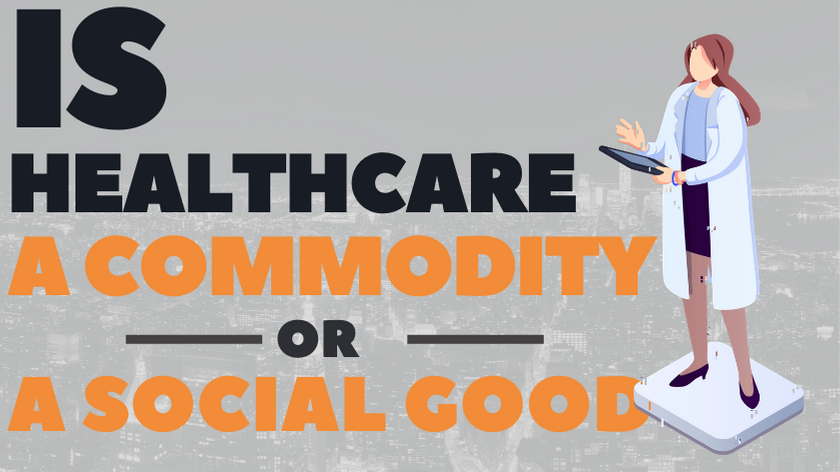If you look up the definition of social good, it is defined as an action that provides some sort of benefit to the general public. Specifically, it gives examples such as fresh water, education, and healthcare. This sums up that most people view healthcare as a social good. When you look up the definition of commodity it is defined as an article of trade or commerce, esp. a product as distinguished from a service. That definition does not seem to fit healthcare, which most would consider a service, not a product. However, many would argue that healthcare is currently a commodity because healthcare services are purchased either through a healthcare exchange, through company sponsored insurance plans, or paid for outright.
If someone does not purchase a health insurance plan their only option is to pay out of pocket for healthcare. Most people that do not purchase health insurance cannot afford the out of pocket expense for healthcare, so their solution is to avoid seeking healthcare as much as possible except in the case of an emergency. When they do have a healthcare emergency, they access emergency services, which by law must be provided to anyone seeking care. These emergency services can then attempt to bill the client post services, but a large portion of those services go unreimbursed. The result of this situation is that healthcare costs are driven higher, and those individuals are not receiving efficient preventative treatment. Many times, they also do not return for follow up care as needed due to inability to pay, or concern for increasing their outstanding bill.
The idea behind the Affordable Care Act (ACA) was to allow everyone the ability to access healthcare at a reasonable rate. If it worked as planned, it would move healthcare from a commodity to a social good, ensuring everyone had access to healthcare. One of the benefits of the ACA is allowing children to remain on their parent’s insurance plans until age 26, the idea being to give them time to get through college and seek jobs with options for their own insurance. Another benefit was the ability for more people to access Medicaid programs.
Some of the problems with the ACA was that not all providers accepted the new healthcare plans due to their low reimbursement. Many providers are also unwilling to treat the underserved. This results in long wait times at the limited providers, meaning many patients do not receive timely care. As a result, many head for the emergency rooms and we have the same situation as before, increased healthcare costs and a lack of preventative treatment.
Another problem with the ACA is the major difference between plans. Plans that charge a higher premium offer better access to care. A large portion of the plans that started with ACA are high deductible plans, and many people are struggling with those deductibles. Again, this results in people not seeking care as needed, especially preventative care, and only going in for emergency services. This also causes the same overall result, increased healthcare costs.
Healthcare is still a commodity when you factor in that not everyone is able to access healthcare services for the above-mentioned reasons. While the Affordable Care Act was enacted with good intentions, it has not succeeded in changing healthcare from a commodity to a social good.
Let's Grow Together!
We look forward to learning about your healthcare business to discover how GMM can create a profitable solution!

Contact Us

Navigation
Contact Us

